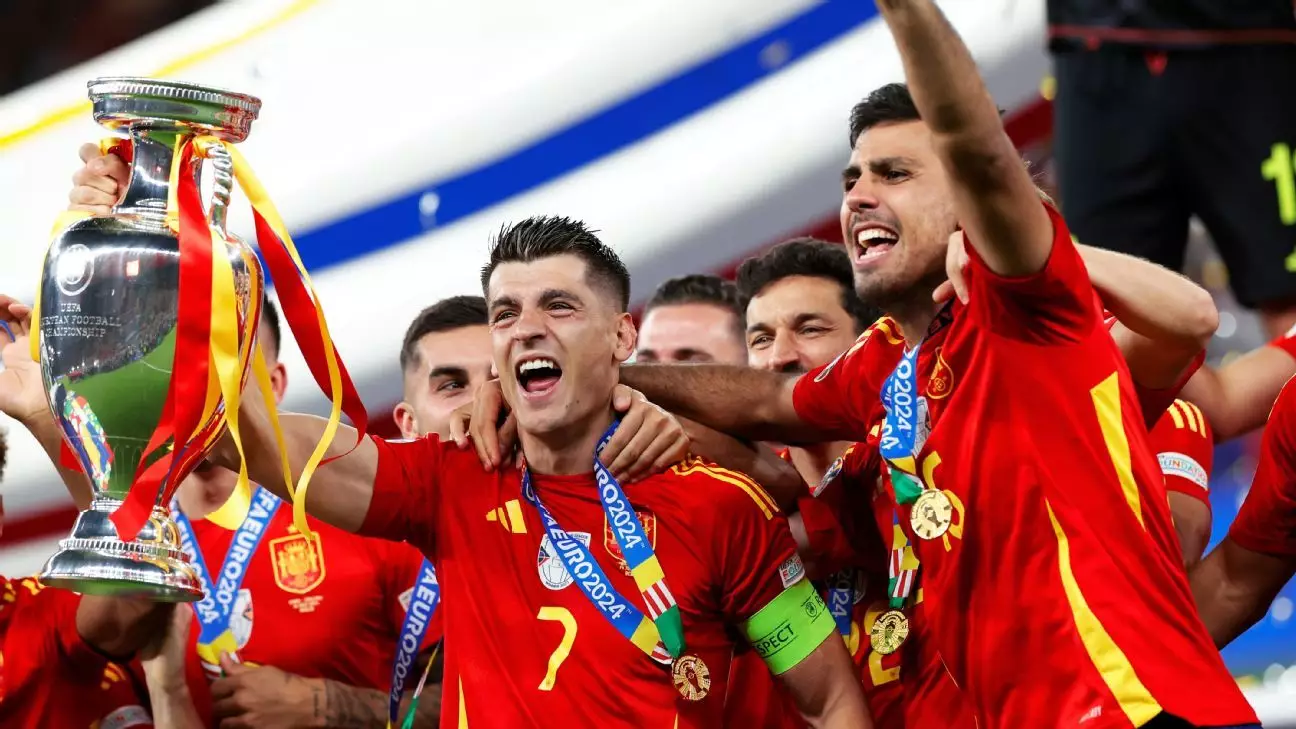As the countdown to the 2030 World Cup continues, Spain finds itself in a precarious position regarding its role as a host nation. Spanish national team coach Luis de la Fuente voiced his concerns over the country’s possibility of losing hosting rights due to a leadership vacuum within the Spanish Football Federation (RFEF). With FIFA’s upcoming Congress meeting scheduled for December 11, uncertainty looms, particularly as the federation remains without a president since Pedro Rocha was suspended in July 2023 for a two-year penalty linked to serious infractions.
FIFA has made it clear that it expects the RFEF to elect a new president within a three-month timeframe. De la Fuente’s lionhearted stance reflects the profound implications of these developments, emphasizing that the entire nation has a stake in this situation. He highlighted that those unconcerned about the potential loss of hosting rights are, in his words, either uninformed or neglectful. The absence of effective leadership within the RFEF has raised eyebrows, as FIFA strictly prohibits governmental interference in managing football federations. This political and administrative quagmire could severely impact the integrity and future of Spanish football.
The consequences of losing World Cup hosting rights extend beyond reputational damage; they could also jeopardize economic opportunities vital to the country. Major sporting events like the World Cup can provide a significant boost to tourism and local economies. De la Fuente’s proactive call for normalcy within the RFEF resonates with a growing urgency that transcends the football pitch. He underscored the importance of unity and governance to ensure Spain can successfully host the World Cup, suggesting that venues like the iconic Santiago Bernabéu Stadium would play a pivotal role.
While the governance issues weigh heavily, De la Fuente also faces the challenge of fielding a competitive squad amid player injuries. Key midfielder Rodri, a crucial player for both club and country, is sidelined indefinitely following an injury sustained during a match with Manchester City. De la Fuente expressed optimism about Rodri’s recovery, highlighting the player’s resilience. Despite the gloomy outlook on his recovery timeline, De la Fuente’s belief in Rodri’s spirit reflects a broader narrative of hope in the face of adversity.
As Spain approaches its upcoming Nations League matches against Denmark and Serbia, the air is heavy with anticipation and concern regarding its organizational stability and player availability. The dual crises of uncertain football governance and vital player injuries present a test of resilience not only for the national team but for the entire Spanish football structure. With FIFA looming large over these issues, the coming months will be crucial—both for the fate of the World Cup and for the future of Spanish football itself. The stakes could not be higher, and De la Fuente’s clarion call for action may be the first step in securing a more stable and prosperous future for Spanish sports on the international stage.
